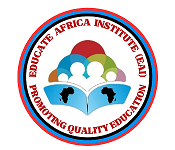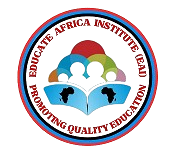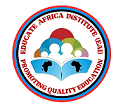The Role of Religion in African Development: A Public Education Piece powered by Educate Africa Institute (EAI)
Religion is deeply woven into the fabric of African society, influencing daily life, culture, governance, and the development trajectory of many communities. In contexts where government support is often limited, religious institutions step in as pillars of support, guidance, and transformation. Understanding the dual role religion plays in African development is essential for citizens, policymakers, and development practitioners.
Positive Contributions of Religion to African Development
1. Social Change and Community Mobilization
Religious groups often serve as powerful forces for mobilizing communities around social and developmental causes. Through sermons, teachings, and community outreach, they promote values such as education, health, environmental care, peace, and justice essential for progress and nation-building.
2. Economic Development
Faith-based teachings on integrity, diligence, and stewardship have inspired many to embrace entrepreneurship, ethical business practices, and investment. Churches, mosques, and other religious bodies often support microfinance and vocational training programs, contributing meaningfully to local economic growth.
3. Provision of Social Services
In many African countries, religious organizations are key providers of education, healthcare, and humanitarian support. Their schools, hospitals, clinics, and orphanages reach underserved communities, filling critical gaps in government service delivery.
4. Promotion of Moral Values and Social Cohesion
Religion instills moral values that encourage ethical behavior, honesty, and social responsibility. These values foster unity and trust within communities, reducing crime and promoting peaceful coexistence vital ingredients for sustainable development.
5. Empowerment and Hope for the Marginalized
Faith offers psychological support and hope, particularly to the poor, sick, and marginalized. This sense of purpose and spiritual strength often motivates individuals and communities to take charge of their development.
Challenges That Must Be Addressed
1. Conflicts from Religious Interpretations
Differing or extreme interpretations of religious doctrines have, in some instances, fueled divisions and violence. Such conflicts can destabilize communities and derail development efforts.
2. Stigmatization and Discrimination
Discriminatory practices based on religious differences hinder inclusivity and social justice. When certain groups are excluded from development opportunities due to their beliefs, entire communities suffer.
3. Hindrance to Practical Development
In some cases, rigid religious ideologies may conflict with scientific or progressive development approaches, delaying interventions in health, education, or gender equality.
Real-Life Examples
Education and Healthcare: Many churches and Islamic organizations have established and continue to manage schools and hospitals that serve both urban and remote areas across Africa.
Social Welfare Initiatives: Religious groups provide vital services such as feeding programs, counseling, housing for the homeless, and support for the elderly and orphaned.
Economic Empowerment: Through vocational training and microfinance schemes, religious institutions help individuals, especially youth and women, build skills and start small businesses.
Conclusion
Religion, when harnessed positively, is a transformative force in African development. It complements state efforts, empowers individuals, and fosters unity. However, we must also be vigilant against the misuse of religion in ways that divide and exclude.
Let us all faith leaders, policymakers, educators, and citizens—work together to maximize the positive role of religion in building a prosperous, inclusive, and peaceful Africa.
Signed:
William Boadi
Executive Director, Educate Africa Institute (EAI), Educationist | Political Analyst | Social Worker
0541935106
EAI: EDUCATION AND SOCIAL JUSTICE.



